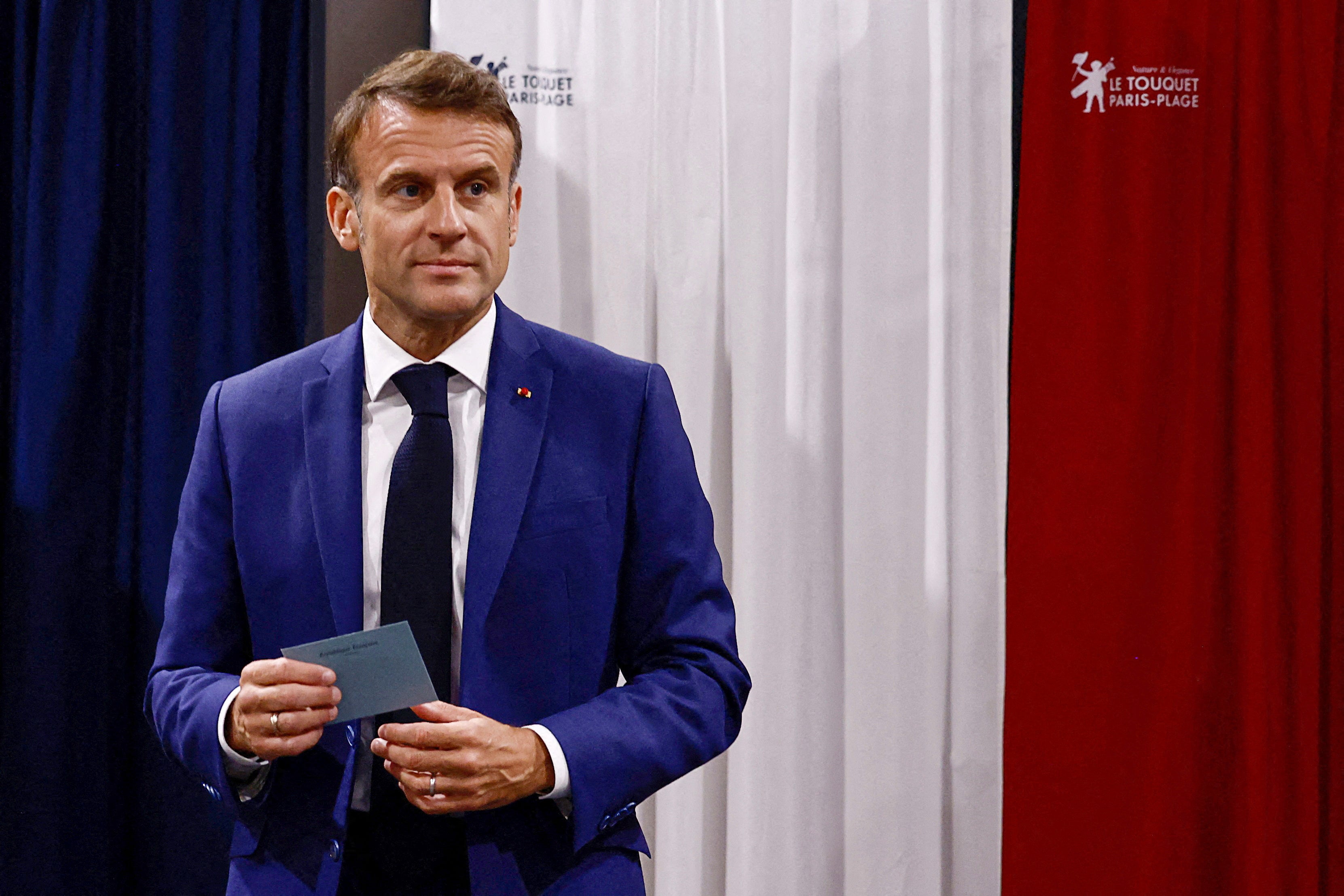Macron asks Attal to stay as PM for now as France faces hung parliament
A fragmented parliament will make it hard for anyone to push through a domestic agenda and is likely to weaken France's role in the EU

France's president Emmanuel Macron has rejected the resignation of prime minister Gabriel Attal, calling on him to stay on as the country faces weeks of political instability in the wake of a snap election that resulted in a hung parliament.
A left-wing alliance was the surprise winner in the vote, called by Emmanuel Macron a month ago in the wake of a humiliating defeat to Marine Le Pen's far-right National Rally (RN) in European elections. RN won the first round of the French vote late last month, but tactical voting put paid to their ambitions of taking control of parliament.
The leftist New Popular Front (NFP) alliance won 182 seats in the 577-seat, Macron's centrist alliance 168 and RN and allies 143, Interior Ministry data cited by Le Monde newspaper showed. Other media had slightly different counts, and final numbers will depend partly on individual parliamentarians joining different groupings.
With no single group securing a working majority, the outcome heralded a period of volatility before the Paris Olympics and raised uncertainty among investors about who would run the euro zone's second largest economy.
"It's not going to be simple, no, it's not going to be easy, and no, it's not going to be comfortable," said Green party leader Marine Tondelier. "It's going to take a bit of time."
Possibilities include the left forming a minority government and the cobbling together of an unwieldy coalition of parties with almost no common ground.
Mr Attal, a centrist and ally of Macron, tendered his resignation but was told he is needed. "The president has asked Gabriel Attal to remain prime minister for the time being in order to ensure the country's stability," Mr Macron's office said.
A fragmented parliament will make it hard for anyone to push through a domestic agenda and is likely to weaken France's role in the European Union and further afield.
"The most immediate risk is a financial crisis and France's economic decline," said the current finance minister, Bruno Le Maire.
The NFP, hastily assembled for this election to try to unify the left-wing vote against the far right, has no single leader and did not say before the election who would be its pick for prime minister.
Ms Tondelier is one of several potential candidates among NFP figures. She told France Inter radio the next prime minister could be from the hard-left France Unbowed party, the Greens or the Socialists, the three largest parties in the alliance.
There appeared to be no consensus on big questions such as whether the bloc should seek support from other forces such as Macron's centrists.
Olivier Faure, the Socialist leader, told France Info radio he expected the parties to agree on a plan this week, but sidestepped a question on whether the NFP would be prepared to negotiate a deal with Macron's centrist camp.
France Unbowed's divisive firebrand leader Jean-Luc Melenchon has ruled out any deal with centrists.
Manuel Bompard, also from France Unbowed, told France 2 TV: "The president must appoint as prime minister someone from the New Popular Front to implement the NFP's programme, the whole programme and nothing but the programme."
The left-wing bloc, whose main proposals include reversing Mr Macron's pension reform and capping prices of key goods, will need some kind of agreement with lawmakers from outside the bloc if they are to govern.
The NFP's programme, which if implemented would be likely to further strain France's overstretched public finances, was viewed negatively by financial markets before the election.
Some prominent centrists said they were ready to work on a pact but would not work with France Unbowed, which many French centrists consider as extreme as the RN.
Mr Macron looks unlikely to be able to drive policy again, though he had already pushed through much of his agenda including increasing the pension age, a move that caused street protests, and a divisive immigration bill.
For Le Pen's RN, the result was a huge disappointment as opinion polls had for weeks projected it would win. The left and centrist alliances cooperated after the first round of voting last week by pulling scores of candidates from three-way races to avoid splitting the anti-RN vote.
Le Pen, the party's likely candidate for the 2027 presidential election, said Sunday's ballot had sown the seeds for future victory.
With 32 per cent of the votes, the RN won more votes than any other single party on Sunday but alliances, tactical voting and its own mistakes prevented it winning.
Adelaide Zulfikarpasic, of BVA Xsight pollsters, questioned the RN's preparedness and said some voters had found it "a little scary".
In Boulogne-sur-Mer, in northern France, 61-year old retired fisherman Denis Dewet, drawing parallels with presidential elections said: "It's because France doesn't like the extremes."
Reuters
Join our commenting forum
Join thought-provoking conversations, follow other Independent readers and see their replies
Comments
Bookmark popover
Removed from bookmarks